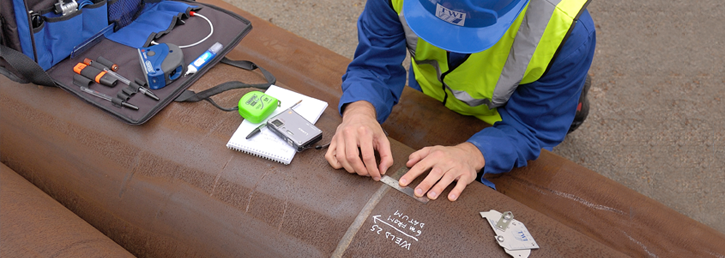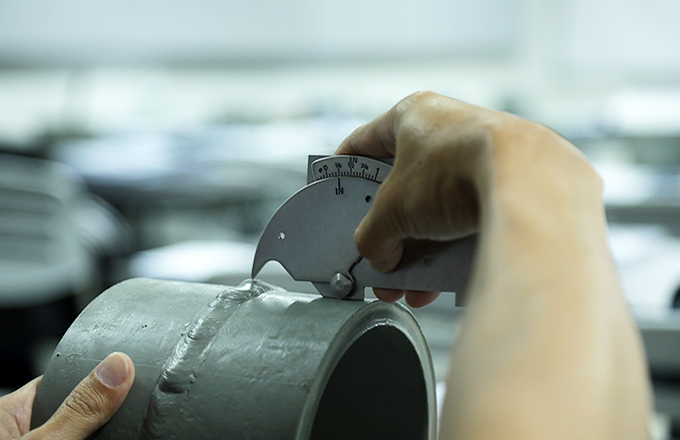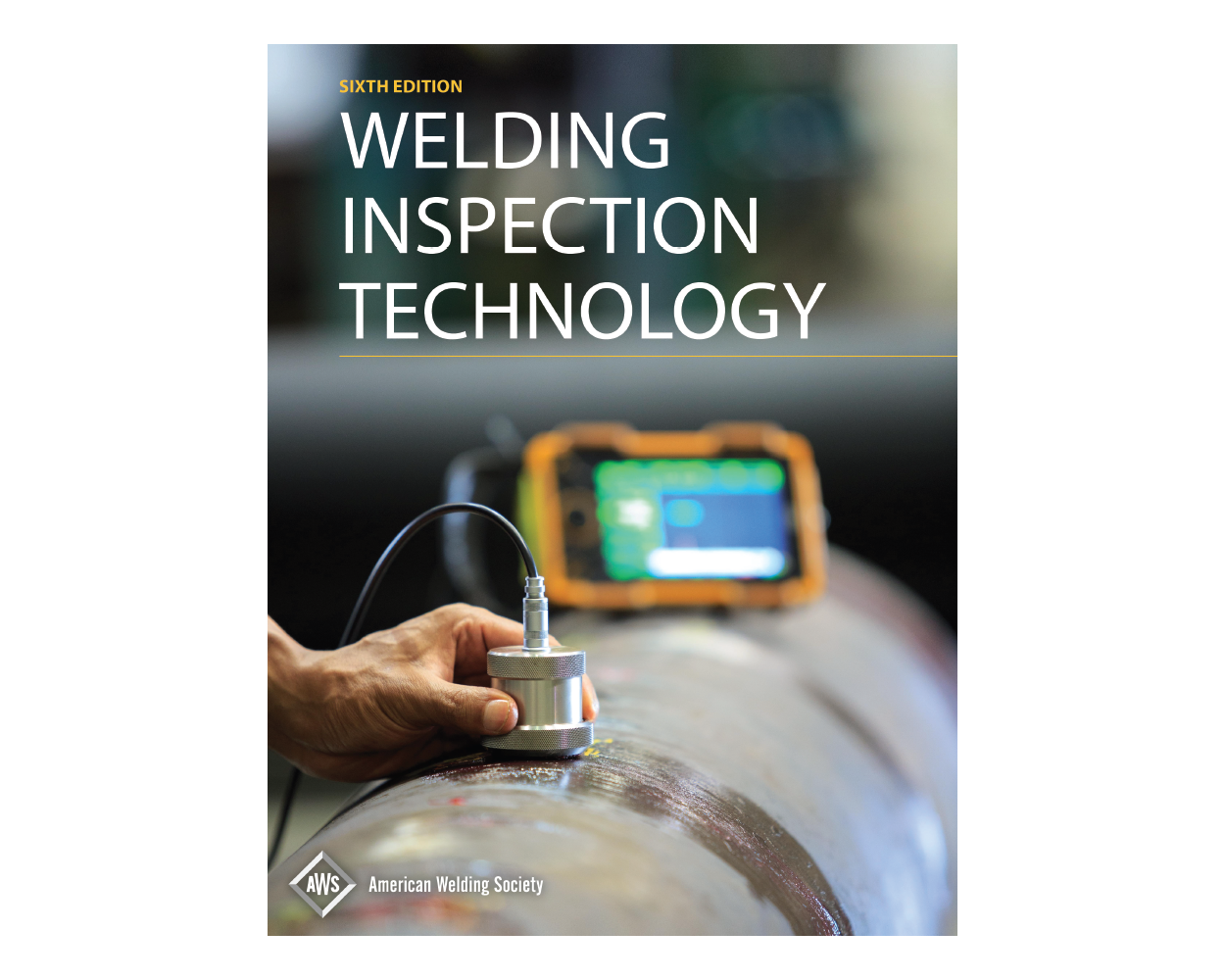A Comprehensive Overview to Welding Inspection Madison Standards
A Comprehensive Overview to Welding Inspection Madison Standards
Blog Article
Exploring Advanced Devices and Methods for Accurate Welding Examination
In the world of welding inspection, the pursuit of accuracy and reliability is critical, spurring the development of advanced devices and approaches. Technologies such as phased selection ultrasonic testing and electronic radiography are reinventing defect discovery, using unrivaled precision in defining welding flaws. Laser scanning developments and automated inspection systems, furnished with fabricated intelligence, are redefining the landscape by decreasing human mistake and improving security measures. As these sophisticated strategies continue to evolve, they assure not just to transform examination practices however also to elevate appealing questions about the future of quality control in industrial applications.
Ultrasonic Checking Technologies
Ultrasonic screening innovations frequently represent the forefront of developments in welding assessment innovations. These advancements have actually substantially improved the capability to discover and examine interruptions within bonded structures, making sure enhanced integrity and safety.

Furthermore, advancements in software application formulas for data evaluation have actually boosted the accuracy of issue detection and sizing. Automated ultrasonic screening systems currently offer high-resolution imaging, making it possible for comprehensive analyses of weld quality. These systems are usually integrated with innovative visualization devices, which help with the interpretation of outcomes.
Radiographic Evaluation Methods
While ultrasonic screening innovations have actually established a high standard in non-destructive assessment, radiographic inspection methods remain to play an integral role in welding evaluation by providing distinct understandings into material integrity. Radiographic testing (RT) utilizes making use of X-rays or gamma rays to pass through products, developing a radiograph that aesthetically stands for the internal structure of a weld. This imaging capability is important for finding subsurface issues such as porosity, inclusions, and cracks that may not show up through surface area assessments.
The procedure includes putting a radiation source on one side of the weld and a detector on the opposite side. Variations in product thickness and thickness impact the attenuation of the rays, producing a contrasting photo that specifically marks problems. RT is particularly advantageous for checking thick areas and intricate geometries where various other methods might fail.
Regardless of its performance, radiographic assessment needs to be conducted with stringent adherence to safety methods because of the dangerous nature of ionizing radiation. The analysis of radiographs requires skilled workers, as the high quality of the analysis directly influences the integrity of the inspection. Continuous developments in electronic radiography are boosting image quality and analysis efficiency, strengthening RT's important function in guaranteeing weld top quality.
Laser Scanning Breakthroughs
Embracing laser scanning innovation in welding assessment has actually changed the assessment of weld top quality and integrity. Unlike traditional evaluation methods, laser scanning supplies fast information purchase, substantially boosting the performance and precision of weld examinations.
Laser scanning breakthroughs have actually caused considerable improvements in defining and spotting surface problems such as porosity, absence of blend, and damages. The high-resolution information enables examiners to carry out extensive analyses, making certain that welds satisfy strict industry criteria. In addition, this technique supports the growth of electronic records, facilitating lasting high quality assurance and traceability.
In addition, laser scanning innovation incorporates effortlessly with software remedies developed for automated defect discovery and assessment. The resultant information can be easily shared and examined, promoting joint decision-making processes. As markets continue to demand greater standards for weld top quality, laser scanning remains at the center, providing exceptional accuracy and efficiency in welding examination.
Automated Examination Solutions

Automated assessment systems provide the benefit of uniformity, eliminating human mistake and subjectivity from the assessment process. They are designed to run in numerous settings, from production floorings to remote field sites, ensuring detailed coverage. Welding Inspection Madison. These systems can be set to comply with specific welding criteria and criteria, giving comprehensive records and paperwork for quality assurance objectives
Furthermore, the combination of cloud-based platforms promotes the storage and evaluation of large quantities of inspection information. This enables pattern evaluation and predictive upkeep, allowing producers to resolve prospective concerns prior to they escalate. The adoption of computerized evaluation systems is an essential move towards boosting the reliability and effectiveness of welding procedures in commercial applications.

Enhancing Safety And Security and Efficiency
A significant aspect of improving security and effectiveness in welding evaluation hinges on the combination of ingenious technologies that streamline operations and alleviate risks. The adoption of advanced non-destructive screening (NDT) techniques, such as ultrasonic testing, phased variety ultrasonic testing (PAUT), and radiographic screening, plays an essential function in making sure structural integrity without compromising the safety and security of the employees included. These see here methods allow for comprehensive examinations with marginal downtime, minimizing prospective hazards linked with typical techniques.
Furthermore, the execution of real-time information analytics and artificial intelligence formulas has changed the method inspection information is translated. By using anticipating analytics, potential issues can be determined prior to they materialize right into important failures, ensuring prompt interventions and upkeep. This proactive technique considerably boosts operational performance and safety in welding procedures.
Additionally, remote inspection innovations, consisting of drones and robot crawlers geared up with high-resolution electronic cameras, enable assessors to examine hard-to-reach areas without subjecting them to harmful problems. This not just improves evaluation precision but additionally decreases human danger. By leveraging these innovative tools and techniques, markets can attain greater safety and security standards and functional efficiency, eventually bring about even more reliable and lasting welding assessment techniques.
Verdict
The integration of advanced tools and methods in welding examination dramatically improves defect discovery and guarantees architectural stability. this website These developments not just boost assessment performance but additionally add to boosted security and top quality assurance in industrial welding applications.

Ultrasonic testing innovations often stand for the forefront of improvements in welding evaluation modern technologies.While ultrasonic testing developments have actually set a high requirement in non-destructive exam, radiographic inspection methods proceed to play an essential function in welding examination by providing special understandings into product honesty.Embracing laser scanning innovation in welding examination has actually revolutionized the evaluation of weld high quality and honesty. As sectors proceed to demand higher standards for weld high quality, laser scanning stays at the center, offering exceptional accuracy and effectiveness in welding examination.
Automated inspection systems provide the advantage of consistency, getting rid of human error and subjectivity from the assessment procedure.
Report this page